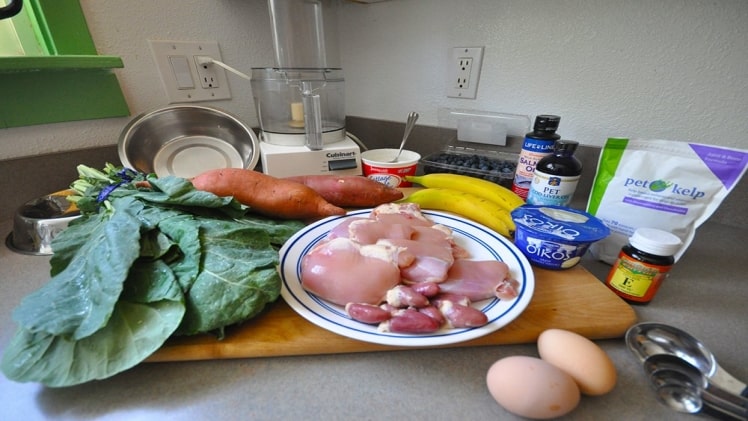Most people likely know someone who has given up grains or embraced a gluten-free diet. Companies selling grain-free dog food have clearly emphasised the advantages of avoiding meals containing grains in support of their philosophy. What do you think about this? Do you think it’s possible that your canines might benefit from eliminating grains from their diets as well? A healthy diet is a foundation for your dog’s long-term health and happiness, and understanding the benefits of grain-free dog food can be the first step in achieving this goal.
Dog food that does not include grains is more readily digested than dog food containing grains.
Before we can comprehend what the ideal nutrition for dogs is, we must first understand the diet of their wolf forebears. A pack of wolves would go on a hunt for prey, relying on high-protein meals rather than grazing on wheat fields for nutrition. In part, dogs are carnivores, and their digestive processes are not well adapted to digesting grains. Since pet food is produced in large quantities, it is more cost-effective to use grain-based fillers like maise and wheat rather than high-quality meat. When dogs consume these grains, they often develop digestive issues, leading to gastrointestinal diseases, inflammation, rashes, and other serious health concerns. Dog food that does not include grains has a number of major benefits, one of which is the increased ability of dogs to absorb and use necessary nutrients.
Feeding dogs grain-free dog food may help to reduce or eliminate allergy symptoms in certain dogs.
Food allergies are characterised by symptoms such as excessive gas, loose stool, constipation, vomiting, and itching. Besides repeated infections and itching, other indicators of food allergies include skin biting and biting the skin. Dogs suffering from allergies can benefit greatly from grain-free dog food, one of the important benefits of grain-free dog food. Many dog owners have reported that the use of grain-free dog food had a dramatic reduction or elimination in their pup’s allergy issues.
You can also explore moving your dog to a grain-free dog feed to see whether the symptoms subside or not.
Dog food without grains has a good effect on the dog’s look.
Many grain-free dog food converts are motivated by more than just the medical benefits; they may also notice that their dogs seem to be in better health because of their decision to switch. Grain-free dog food may help your pet develop less flaky skin, shinier coats, and whiter teeth over time. A bonus is that you will get fewer stinky dog kisses as grain-free dog food may assist in improving the breadth of your canine.
Efforts are being increased.
Dog diets that are less expensive often include a high content of processed grains. Their fibre content has been significantly reduced, causing your dog to consume the calories included in the diet at a far faster rate than they would have done otherwise. Your dog’s blood sugar levels will plummet as a consequence of this, in the same way that humans experience an increase in energy when we suddenly become more active. They will feel sluggish and exhausted as a result of this experience. Granulated food does not have this issue and instead helps your dog spend energy over a longer period of time, eliminating an initial rush in energy followed by a subsequent decline in energy.
Excellent for Dogs Who Are Expecting a Child
When your dog is pregnant, her body is placed under tremendous stress, and she needs to be in the greatest possible health since she is responsible for both her health and the health of her puppies. Giving your dog more food will not be nearly as helpful as giving him less high-quality food, such as grain-free dry dog food. This will supply them with the energy and nourishment they need, as well as ensure that they stay as healthy as possible during and beyond their pregnancy.
Breathing has been improved.
We’re all aware that dogs might have terrible breaths from time to time. You may not have realised it, but a significant portion of this might be due to their eating habits. It is common for grains-containing food to create a film on your dog’s teeth, which indicates that there are much more germs in the mouth of your dog than is usual for his species. The bacteria may produce a bad odour while they are being washed away by saliva and water, but they will ultimately disappear. Because there is no film left on the teeth after eating grain-free food, your dog’s breath will not be as foul as it would be if he were to consume regular dog food. Once or twice a week, dental cleaning for your dog is still recommended to guarantee that there are no hidden concerns.

